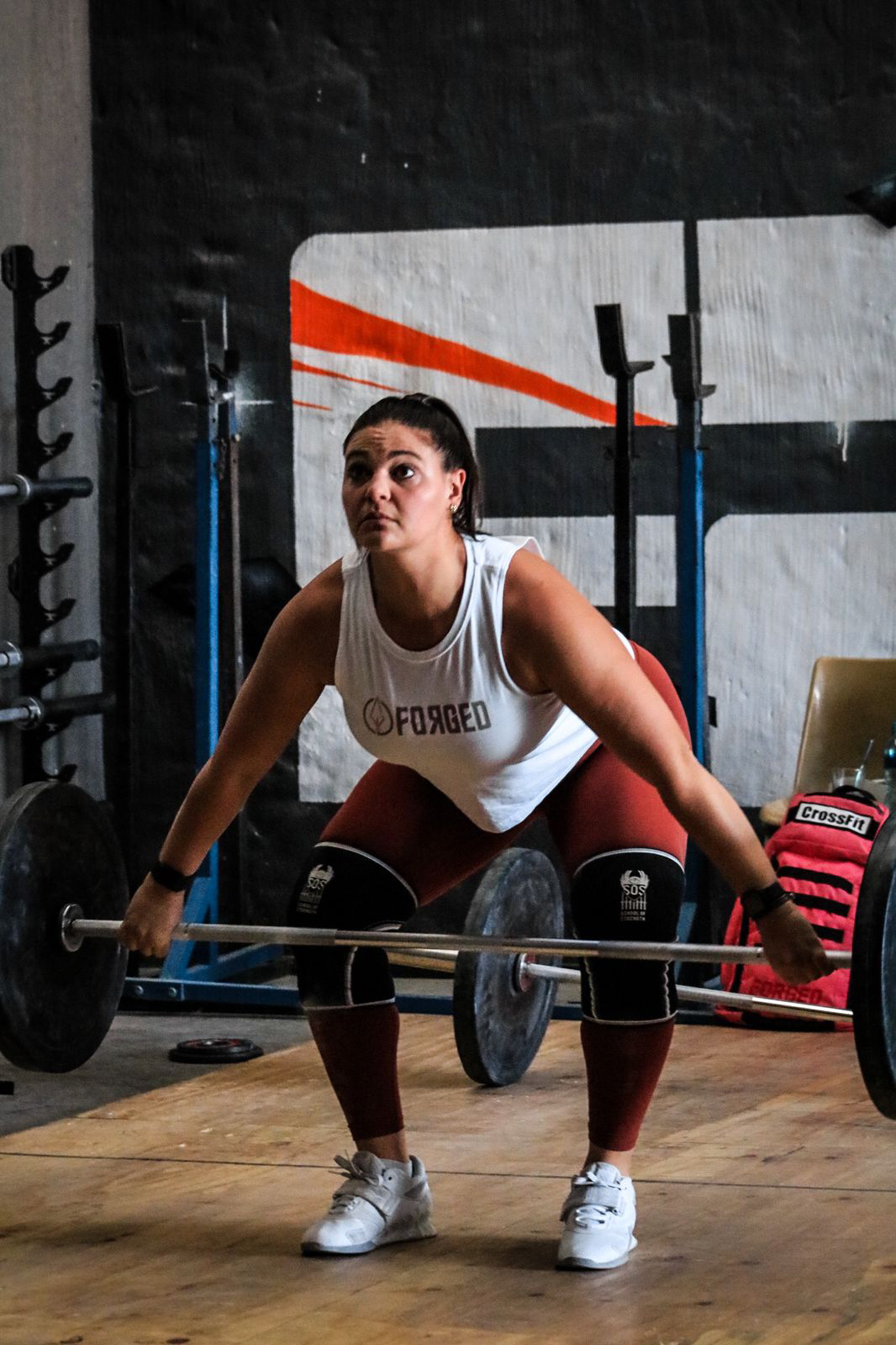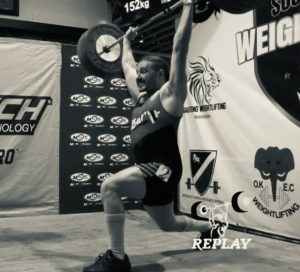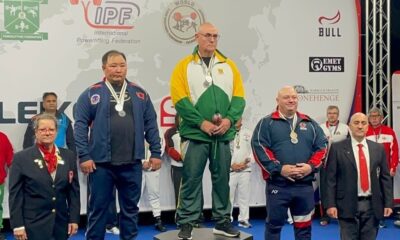
Sport

From the unknown to the unlimited – weightlifters raise the bar
Lawyer Gabriella Berkowitz won gold in the women’s 87+ kg division at the South African National Weightlifting Championships in Mossel Bay, Western Province, on 22 and 23 October, just two years after taking up the sport. And for fellow Johannesburg-based King David Linksfield alumni, Gregg Bernstein, it was a case of third-time lucky.
Bernstein, a civil engineer, won the men’s 89kg division against about 10 other weightlifters after placing third and fourth respectively at the 2014 and 2018 editions of the championships. “I’m extremely proud,” he says. “It’s something I’ve been working towards. It’s nice to win finally. I always trained to win the national championships, but I was constantly suffering from some sort of injury during previous attempts.”
Berkowitz says it feels incredible to have won gold in her first competition. “I wasn’t expecting to win. It was a real spectacle. Three people competed in my division. I won by about 15kg to 20kg.”
The 60kg she lifted in the snatch was a personal best for her by 4kg. “In the clean and jerk, I lifted 75kg, which is about 99% of my personal best.”
Bernstein went up against one of his rivals who have consistently beaten him over the past two or three years. “I knew it was going to be quite a difficult challenge to beat him, but I basically had the best training cycle I’ve had since I started weightlifting. I felt like it was 50-50 going against him.”
Bernstein was one of four weightlifters with a fighting chance of winning a medal as the men’s 89kg division progressed, but he proceeded to win the event courtesy of lifting personal bests of 122kg in the snatch and 152kg in the clean and jerk. “I was ecstatic that I actually managed to hit personal records when the pressure was on, when it counted,” he says.

The weightlifters didn’t have to go through a qualification process for this year’s championships. “Usually, there’s a standard you have to lift in club competitions,” Berkowitz says. “If you manage to hit a certain number for your weight class, you’re invited to compete at national championships, but this year, they did away with the qualifying standards because they wanted to encourage more participation. That prompted more people to come. It was nice to have extra weightlifters there.”
Bernstein’s weightlifting journey began when in 2012, he stumbled upon a YouTube video of two weightlifters competing at the Olympics. “Clichéd as it sounds, it was love at first sight. I saw what these athletes could do, and I thought I must learn how to do this. I had never done weightlifting before. I had actually never even seen the sport before.
“Back then, apart from seeing weightlifting on YouTube, the sport wasn’t televised or covered in any other form of mainstream media in South Africa unless the Olympics was on. It’s a small sport, but it’s much bigger now than it used to be. That’s because of CrossFit. A lot of CrossFit athletes have decided they love weightlifting.”
That was the case for Berkowitz, who started weightlifting through CrossFit in October 2020.
“CrossFit incorporates weightlifting, metabolic conditioning, and gymnastics,” she says. “I have always been better at weightlifting. My weightlifting started to improve exponentially in a really short space of time, so I started private weightlifting in addition to CrossFit. My coach thought I had a really promising career in weightlifting. He wanted me to be introduced to the sport through the national champs. That’s sort of my weightlifting story so far. We will see where I go from here.”
Berkowitz and Bernstein both do weightlifting training, often together, about three times a week at the Bar Strength & Conditioning Gym in Linbro Park, Sandton. “This gym is very well known in the weightlifting community,” the latter says. “It has one of the best weightlifting coaches in the country, Andrew Anthony, who has been training me pretty much for the past eight years.”
Berkowitz says juggling weightlifting with being a lawyer keeps her sane. “It’s my escape, and the thing I enjoy most. It’s non-negotiable for me. I refuse to give up on my training.”
She would love to become an African champion, participate in the Maccabi and Commonwealth Games, and push herself to her limit.
“My coach believes in me 100%. That’s the most you could ask for in a coach.”
Bernstein has won medals in the Gauteng provincial championships and won the Arnold Classic Africa weightlifting event. “I’ve never been selected to compete overseas. I’m hoping that will change with the results I’ve achieved. My medium-term goal is to go to the African Championships next year. I would love to be able to snatch 140kg and clean 180kg. The Commonwealth Games is probably my greatest aspiration. I’ve got four years to train for the next one [in Victoria, Australia].”
South Africa has never garnered a weightlifting medal at the Olympic Games but bagged two bronzes in the sport at the Commonwealth Games.
Bernstein says weightlifting is one of the least developed sports in South Africa, but is becoming more popular.
“You can’t make a career from weightlifting in South Africa. This is why I work full-time. I’m not making money from weightlifting. It’s not unique to me, it’s the case across the board.”
Weightlifting is unique because it pushes you beyond your boundaries and there are no barriers, Bernstein says. “To improve in weightlifting, you have to do something you’ve never done, whereas in other sports, your improvement might be measured in other ways. What appeals to me about weightlifting is how you’re always pushing your body to an unknown limit to achieve something you have never done before.”






